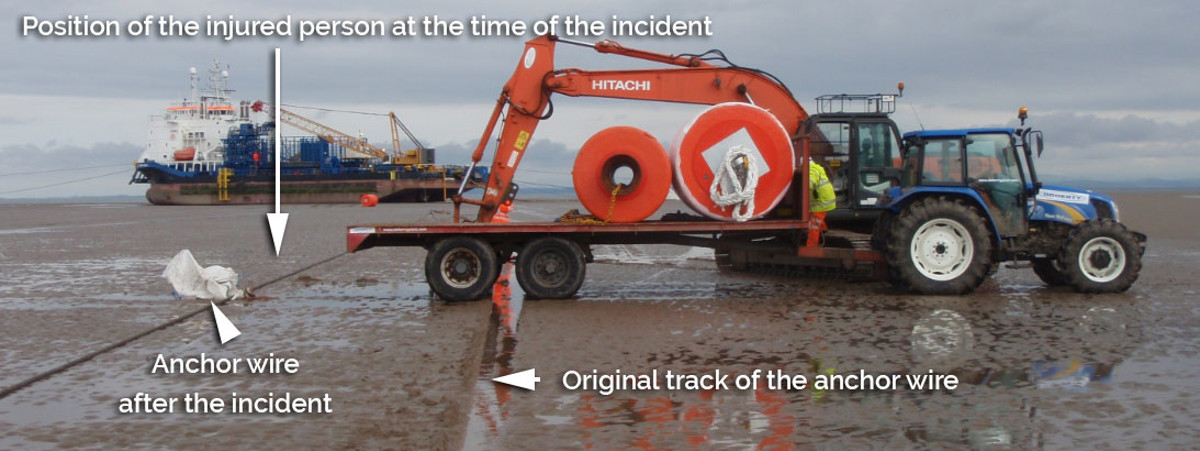Injury caused by movement of wire rope under tension
- Safety Flash
- Published on 13 May 2014
- Generated on 26 April 2025
- IMCA SF 07/14
- 1 minute read
Jump to:
A Member has reported an incident in which someone was injured by an anchor wire that skidded off unexpectedly off a flatbed trailer.
What happened?
The incident occurred on a beach during cable installation operations, when personnel were connecting midline buoys to an anchor wire. The injured person sustained a broken foot but the incident had the potential to be a fatality.

Scene of incident
The investigation revealed the following:
The root causes was lack of knowledge of what was happening at the worksite: persons involved were not aware of the fact that tension is still in a wire even when hanging slack and lying on the beach for a considerable length (700 meters).
Lessons learnt
It is in the nature of a wire rope that there will always be stored or residual energy in a length of it. This introduces a range of potential safety issues including manual handling and unexpected release of energy when handling the wire ropes. These issues should be taken into account in job planning, tool box talk and risk assessment before the start of the job.
Related safety flashes
-
IMCA SF 13/13
4 September 2013
-
IMCA SF 17/08
3 December 2008
-
IMCA SF 05/03
1 June 2003
IMCA Safety Flashes summarise key safety matters and incidents, allowing lessons to be more easily learnt for the benefit of the entire offshore industry.
The effectiveness of the IMCA Safety Flash system depends on the industry sharing information and so avoiding repeat incidents. Incidents are classified according to IOGP's Life Saving Rules.
All information is anonymised or sanitised, as appropriate, and warnings for graphic content included where possible.
IMCA makes every effort to ensure both the accuracy and reliability of the information shared, but is not be liable for any guidance and/or recommendation and/or statement herein contained.
The information contained in this document does not fulfil or replace any individual's or Member's legal, regulatory or other duties or obligations in respect of their operations. Individuals and Members remain solely responsible for the safe, lawful and proper conduct of their operations.
Share your safety incidents with IMCA online. Sign-up to receive Safety Flashes straight to your email.